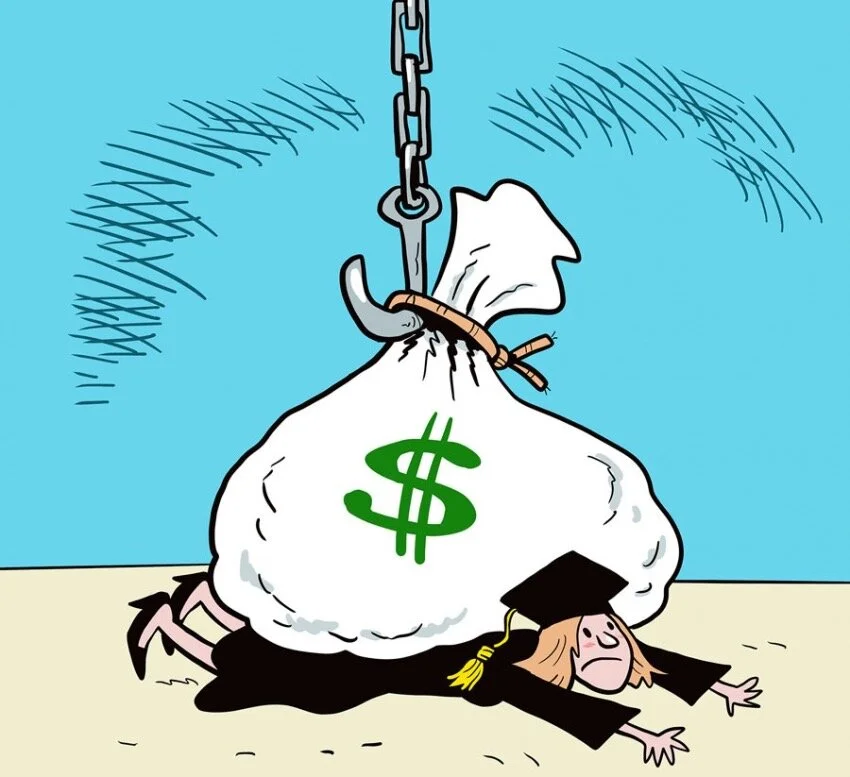How the Coronavirus will Impact Student Loan Debt
For the majority of students completing graduate degrees, the joy of receiving your diploma after four years of vigorous course work and demanding clinical studies can quickly be over-shadowed by the harsh reality of repaying the mountain of student loan debt accrued during schooling. In the field of veterinary medicine, the American Veterinary Medical Association reported in 2016 that the average debt of a graduating veterinary student was $167,534.89, with over 20% owing at least $200,000.
The Coronavirus Pandemic has created a world of vast economic uncertainty for many, including those shouldering a large student loan debt. To ease some of the burden of loan repayment during a time that may have crippling financial impact on many, the federal government has issued the Coronavirus Aid, Relief, and Economic Security (CARES) Act. It provides automatic suspension of principal and interest payments on federally-held student loans through September 30, 2020.
Are you wondering how this new Act may impact your loans? Find answers below to some questions you may have regarding the impact this may have on your loans:
Q: Do I need to apply to suspend my payments?
No, if your loans are borrowed through a federal student loan service, payments will automatically be suspended. Interest rates have also been lowered to 0% until September 30, 2020.
Q: Will the suspension affect all my loans, including those privately held?
No, the suspension of payments only applies to those held by the federal government. Any private loans owned by banks, credit unions or other private entities are not covered by this Act, regardless if the purpose for borrowing was related to education. Likewise, any personal loans for cars, mortgages and other home equity lines will continue to accrue interest during this time.
Q: I am enrolled in automatic loan repayment, will this be suspended at this time?
It is unlikely that automatic withdrawls will be suspended by your loan service without you logging into your account online and deactivating this option.
Q: I can not afford my student loan payment, what should I do?
- For federal- held loans, you do not have to make a payment until after September 30, 2020. Payments can be paused with no penalty.
- If you are on an income-driven repayment plan and now can no longer afford payments, contact your service provider to recalculate your monthly payment based on your current income.
- For commercial and privately held student loans, contact your lender to see if they offer a reduced payment option or other means of postponing payments.
Q: What is the difference between forbearance and defaulting on loans?
Forbearance is a pause in your student loan payment for 60 days with no penalty. If you can not afford to pay your student loans during this time period, contact your provider to enter into forbearance. Interest will also not accumulate during this time period.
When payments that are owed on a loan cease without forbearance, the loan goes into default. Interest will continue to accumulate in addition to late fees and penalties that will negatively impact your credit score.
For many, the CARES Act will offer some much-needed relief during this time of economic hardship. However, for those whose income remains steady, now may be the ideal time to get aggressive about paying off some of your student loan debt in order to save money long-term. During the next several months, when interest rates on federal student loans are 0%, any payments made toward your debt will go entirely towards the principal amount owed. Under normal circumstance, my $550 monthly student loan payment results in approximately $175 of that payment being applied to accrued interest. However, if I continue with my monthly loan payments during this six-month interest free grace period, as all of the payment is applied to the loan’s principle, the result will be just over $1000 deferred from interest on the loan. This savings is equivocal to getting ahead of my payments by two months! Likewise, any additional payments made on top of your monthly payment will also go entirely toward the principal of the loan.
So, as the drive-thru lines at your favorite coffee shop wrap a mile down the road over the next several weeks, you may want to reconsider spending that $5 a day on a latte. Putting those extra savings toward your student loans over the next few months may start to lower the summit on that mountain of debt you’ve been trying to overcome.




